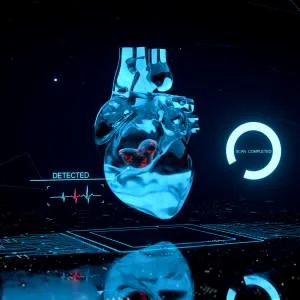Mayo Clinic recently released a study demonstrating that clinicians who are high adopters of AI-enabled clinical tools can treat and diagnose patients more easily.
The study revealed that high adopters of AI-enabled tools were twice more likely to diagnose low left ventricular ejection fraction, compared to low adopters of the tool.
David Rushlow, M.D., a Mayo Clinic physician and chair of Family Medicine for Mayo Clinic in the Midwest, stated, "It was surprising to see the significant difference in the rate of diagnosis between high adopters and low adopters".
"The tool is extremely helpful, but we did not expect to see a full doubling of the diagnosis rate of low ejection fraction as compared to low adopters".
Interestingly, the study showed that this outcome was not affected by age, gender, years of experience and number of patients cared. However, high adopters were less experienced in dealing with patients with complex health issues.
Patients with low ejection fraction benefit from early diagnosis and treatment. Neglecting to treat early may lead to risk of symptomatic heart failure, hospitalisation and mortality. Fortunately, AI decision support tools have the potential to outperform traditional diagnostic approaches, as they help to diagnose the condition before the onset of usual symptoms.
In a randomised controlled trial involving 358 physicians, nurses and physician assistant, 165 of them were allocated to the AI arm. The AI algorithm was run on 22,641 patients who had an electrocardiogram (ECG) performed. Clinicians in the intervention group had access to the screening report that displayed the AI-ECG screening as positive or negative.
If the tool determined that a screening report was positive, it indicated patients had a high likelihood of previously unrecognised low ejection fraction. Following this, clinicians had to consider whether to order an echocardiogram.
Overall, the results revealed that clinicians with less experience in supporting complex patients were more likely to follow through with the recommendations of the AI decision aid.
As Dr Rushlow concluded, "Given the technical nature of AI in health care, it often is initiated and developed in academic specialty practices. To maximize AI's benefits, more collaboration is needed between specialty practices and primary care".
Source:Mayo Clinic
Image Credit: iStock
References:
Rushlow R D et al (2022). Clinician Adoption of an Artificial Intelligence Algorithm to Detect Left Ventricular Systolic Dysfunction in Primary Care. Mayo Clinical Proceedings. 97(11):2076-2085.










